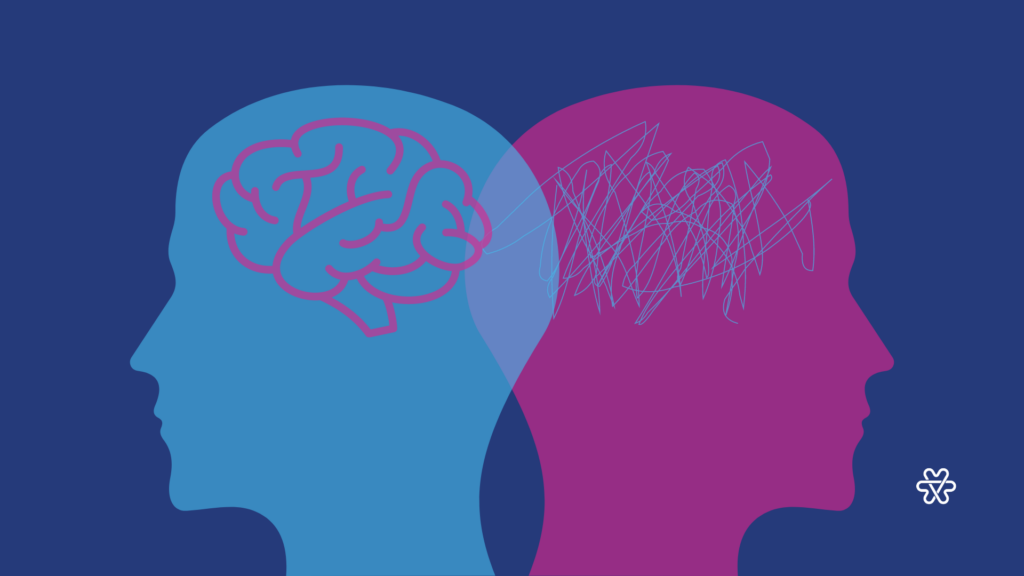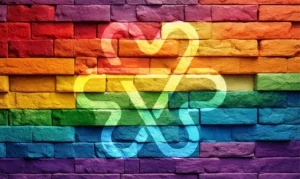TW: This article has a mention of suicide. In honor of National Suicide Prevention Month, we are exploring mental health in the Atlanta Community. While many communities in Georgia do not have appropriate mental health support by national standards, AvitaCare Atlanta is working to change that in our community. AvitaCare Atlanta provides comprehensive mental health solutions. If you or someone you know is struggling with suicidal thoughts, please call the Suicide and Crisis Lifeline at 988.
Mental Health in Georgia
Georgia ranks 48th of 50 states and Washington D.C. for access to mental health care, resources, and insurance, according to Mental Health America.
Of the over 10.8 million residents in Georgia, only 14,782 people have been trained in mental health literacy, according to Mental Health America. This leaves over 4.9 million Georgia residents without access to mental health services.
We spoke to Pristella Ohanaja, DNP, PMHNP about mental health awareness and suicide prevention. She spoke about the work she does in her own community to help bridge the gap between patients and professionals.
Pristella is proud of how far mental health awareness has come, with a variety of awareness months and days honoring people who are living with mental health issues. This highlights key issues such as Suicide Awareness Month, World Bipolar Day, Stress Awareness Month, and more.
Mental Health and Suicide Prevention Are Changing
Pristella thinks that COVID-19 shed light on mental health needs and increased access to providers virtually. And she’s right. In fact, since 2019, the number of people looking online for help with their mental health increased nearly 500%.
However, there is still a long way to go. Pristella says she would like to see mental health treated like any other health crisis. “Just as we treat people living with HIV, the medical community needs to also understand that mental health is just a brain disorder,” says Pristella. “It’s nothing to be ashamed of. Once patients are medicated and stabilized, they can live the best life possible. Just like someone with any other illness: diabetes, renal failure, or a cardiac issue—once those illnesses are treated and stabilized, people can live healthier lives. Mental health is no different.”
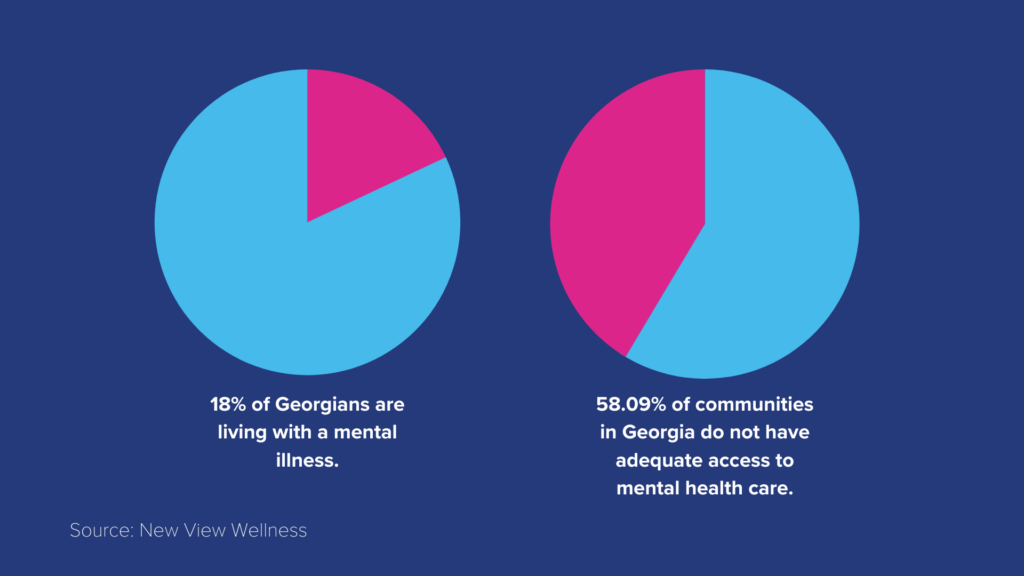
What is holding patients and medical professionals back? For decades, there has been a stigma surrounding mental health that is difficult to overcome.
What does stigma look like, though?
Mental Health Stigma
The stigma surrounding mental health can include stereotypes and mischaracterizations of people living with mental illness. Stigma occurs when mental health is written off as a personal issue instead of a systemic, public health issue.
Through stigma, society might label a person with anxiety as being “weak.” Individuals facing depression often encounter the directive to “snap out of it.” Those with schizophrenia can be unfairly labeled as having a “split personality.” Those in the midst of suicidal contemplation are sometimes referred to as “deeply troubled.” And the list goes on.
“We think mental health is specific to a certain group of people or maybe a certain class of people,” says Pristella. “But mental health has no race, it has no financial status, and it has no gender. Mental health impacts people who are wealthy and people who have high levels of education. There’s no group of people that need services more than others. It carries over to every race and every social status.”
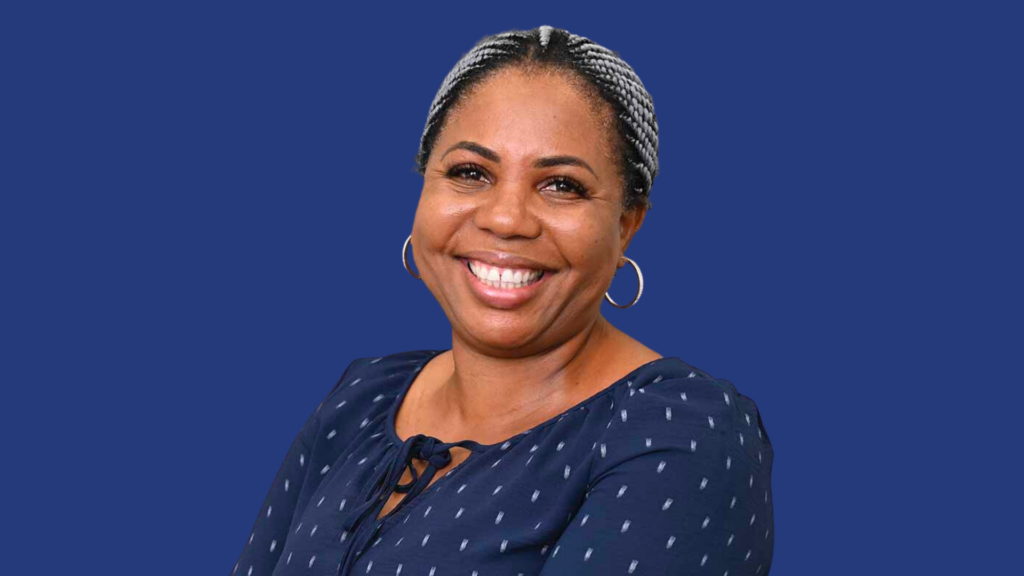
Some mental health professionals are concerned by the way people living with mental health conditions are portrayed in the media and think this may contribute to stigma.
For example, in TV shows and movies “characters with mental health conditions were linked to violence. Since 2016 [,46% … of characters are] shown as perpetrators of violence” reaching 63.4% in 2019 and 72.3% in 2022.
Not only were those with mental health conditions in the media portrayed as violent, but many were victims of violence, as well, with 40% of characters passing away by the end of their series or film.
These negative, inaccurate portrayals continue perpetuating the decades-old stigma that mental health professionals have been fighting.
Despite all the stigma, one thing Pristella is certain of. “When you heal your mind, you can live the best possible life,” she says.
Barriers to Access for People of Color
For people of color in Atlanta, there are additional roadblocks when it comes to seeking treatment for mental health. One of which is negative previous medical experiences. 56% of Black Americans say they have had negative experiences in a health care environment.
“People in the black community have a fear of medical professionals because of systemic racism in the medical industry,” says Pristella. “That’s why I do what I do, to help reach people who have historically not felt comfortable in a clinical setting.”
AvitaCare Atlanta’s team is trained in cultural competence and has a 98% retention rate with its patients, many of whom have been seeing the same provider for decades. The trust AvitaCare Atlanta’s team builds with patients can help reduce some of these barriers.
Additional barriers can include:
- Different cultural perceptions about mental illness and well-being
- Being more vulnerable to being uninsured
- Cultural differences in help-seeking behaviors
“For the black community, seeing mental health providers that look like them is a game changer,” says Pristella. “Seeing someone who looks like them gives them that reassurance that it’s okay to seek help.”
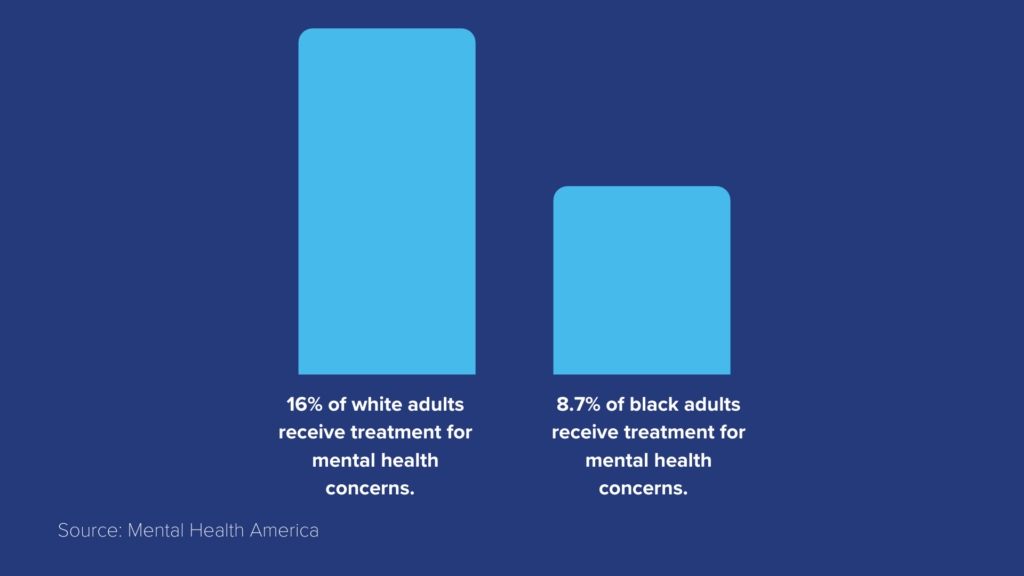
What Should You Do if Someone You Know about Suicide Prevention?
Georgia ranked 32nd in suicide deaths in the U.S., in 2019, with over 1,400 people dying by suicide in 2020 alone. Unfortunately, suicide rates in the state have steadily increased over a decade, with 78% of deaths being among men and 22% of deaths among women.
For Pristella, this issue hits close to home. “In January or February, I unfortunately lost a 20-year-old patient. He was someone who was considered fairly ‘low risk.’”
For family and friends who know someone who has a history of mental illness or suicidal ideation, Pristella recognizes that it’s never easy to bring this up. But it could save a life.
“If you have a good understanding of the individual, you likely recognize their typical behavior,” notes Pristella. “Whether they seem happier or sadder than usual, are displaying unusual levels of anxiety, or exhibiting any noticeable changes in their demeanor, take the opportunity to reach out and check-in. Help them program the 988-hotline number into their phone. If you haven’t heard from them in a while, call them or stop by their house to see how they are doing.”
Knowing the warning signs of suicide can help:
- Talking about being a burden
- Being isolated
- Increased anxiety
- Talking about feeling trapped or in unbearable pain
- Increased substance use
- Looking for a way to access lethal means
- Increased anger or rage
- Extreme mood swings
- Expressing hopelessness
- Sleeping too little or too much
Sometimes, protective factors are key. Think of protective factors like building a wall to protect your health. There are certain things you can do that act like strong bricks in your wall, making it less likely that you’ll experience negative health outcomes.
Suicide Prevention Protective Factors
Some protective factors include:
- Support from partners, friends, and family
- Feeling connected to others
- Feeling connected to school, community, or other social institutions
- Effective coping skills
- Strong sense of cultural identity
“We always ask people who have higher risk of suicide ‘what is your protective factor?’” Says Pristella. “For some people, their protective factor is their dog, their family, or their friends. They don’t want to leave them behind or cause them pain. It’s important to remind people about the things they love and the things that keep them going.”
Although resources like the National Mental Health Hotline exist, many Georgians don’t know about it.
According to a recent survey, only 31% of respondents in Georgia said they knew about the 988-dialing code.
Community members can all do their part in raising awareness by ensuring that their friends and family know about this important resource because it could impact a life.
Pristella Ohanaja is a Family Nurse Practitioner and newly professionally trained Psychiatric Mental Health Nurse Practitioner. She has over 20 years of experience as a Registered Nurse, ensuring AvitaCare Atlanta’s high standard of culturally competent care for a wide variety of patients with diverse needs. Over her two decades of experience, Pristella has worked in Cardiac, medical-surgical, Rehabilitation, Skilled Nursing, Orthopedic, Neuro, Spine, Internal medicine, and Home-Care Nursing.
